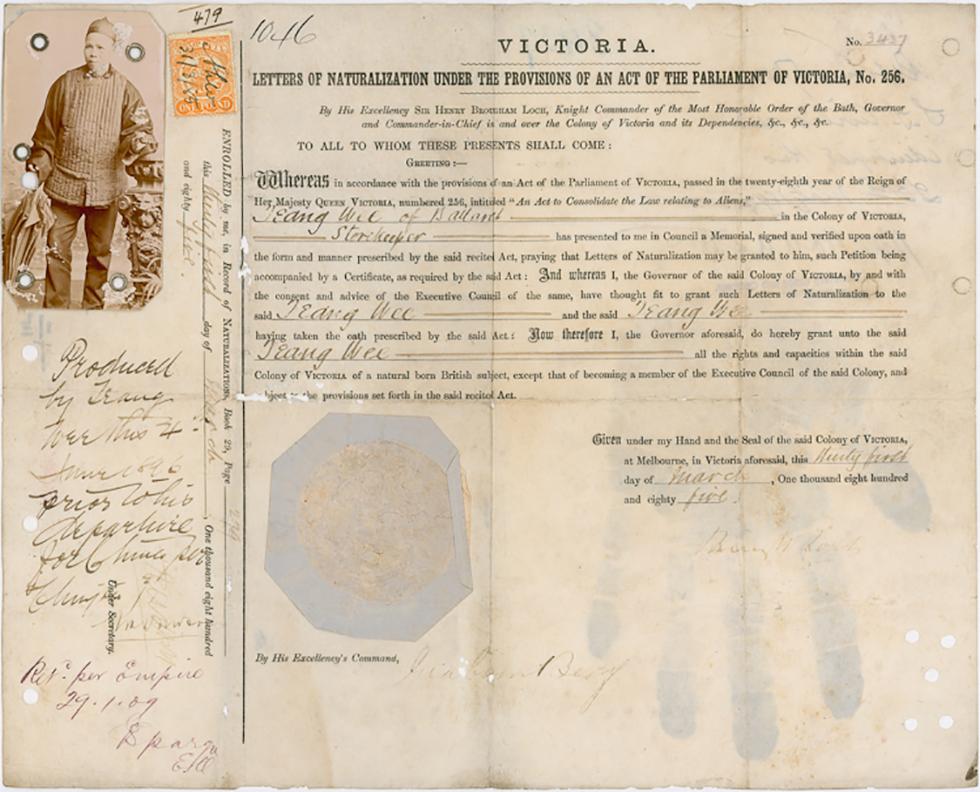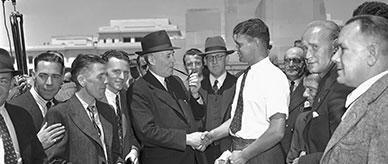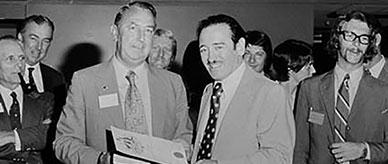


About this record
This is a page from the file on the naturalisation (citizenship) certificate for Teang Wee.
Educational value
- The migration and settlement of Chinese people in Australia was closely controlled by the Australian Government during the first half of the 20th century. Various laws, including the Immigration Restriction Act of 1901, made up what was known as the White Australia Policy.
- While the policy was a great trial for Chinese Australians, it has left a wealth of documents through which we can explore their lives and communities
- Chinese people living in colonial Australia were able to be naturalised (to become British subjects) during certain periods. Each colony had different regulations. The National Archives holds colonial naturalisation records for Victoria and South Australia. This Victorian naturalisation certificate of Teang Wee, issued in 1885, was used several times as an identity document to return to Australia.
Acknowledgments
Learning resource text © Education Services Australia Limited and the National Archives of Australia 2010.
Related themes
Need help with your research?
Learn how to interpret primary sources, use our collection and more.


